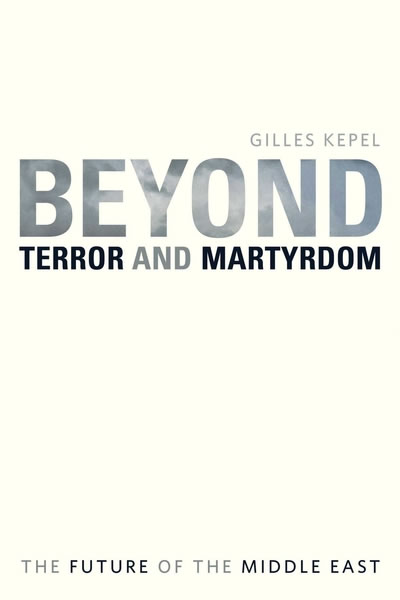 However simplistic the notion of a clash of civilisations, few can doubt that Islam and the West are on a collision course. The virulence of fundamentalist Islamism, the spread of jihadist extremism and, above all, al-Qaeda’s use of terror to wage its uncompromising war on Western ideas and values have been answered by a growing hostility and intolerance in the West. America and its allies have gone to war against the extremism now gripping much of the Muslim world, and Western societies now express open hostility to the Muslim minorities in their midst, seeing them often as an alienated, destabilising and potentially dangerous force.
However simplistic the notion of a clash of civilisations, few can doubt that Islam and the West are on a collision course. The virulence of fundamentalist Islamism, the spread of jihadist extremism and, above all, al-Qaeda’s use of terror to wage its uncompromising war on Western ideas and values have been answered by a growing hostility and intolerance in the West. America and its allies have gone to war against the extremism now gripping much of the Muslim world, and Western societies now express open hostility to the Muslim minorities in their midst, seeing them often as an alienated, destabilising and potentially dangerous force.
Gilles Kepel, professor of Middle East studies in Paris, has already written extensively, and with considerable acclaim, on the growth of jihadism and the battle for Muslim minds. He now looks at the events and forces fuelling the clash between militant Islamism and the West, and traces the political blindness, anger and misunderstanding that led from the “war on terror” to the fiasco in Iraq and the quagmire in Afghanistan.
His narrative is brisk, sharp, detailed and deadly. He looks at the emergence of Iran after the fall of the Shah, the explosive effect of Shia militancy across the Muslim world, the spread of jihadist ideas and the mutation of the Shia concept of martyrdom as Sunni fighters in Palestine and Iraq took over the techniques of suicide bombings. Kepel is not openly judgmental but lets the facts speak for themselves – the clumsiness and incoherence of the Bush Administration’s policies in Iraq, the self-delusion of al-Qaeda’s leadership and Zawahiri’s laughable but dangerous insistence that the entire West will convert to Islam if Muslims use enough force and cruelty to bring down US and European governments.
But what interests Kepel more than just the clash of forces in the Middle East and in cyberspace is the way myths and delusions have taken hold and the advantage the unscrupulous have taken of the inflamed emotions and vulnerable religious beliefs. All have tried manipulating Islam for their own ends – in Iraq, in Lebanon, in Iran and among the large Muslim diasporas of France, Germany and Britain. What the West has not seen so clearly, however, is how splits have developed within the jihadist movement. Abu Musab al-Zarqawi, the petty thug and former Jordanian prisoner who offered himself to embittered Sunnis as leader of al-Qaeda’s Iraqi franchise, became so extreme, so obsessed with killing Shia worshippers and beheading Western hostages that even Zawahiri began to fear his tactics were alienating the Muslim masses from the jihadis’ leadership. Zarqawi’s killing by US forces came as a relief to the men in the Afghan caves. And like any political leaders envious of rivals and fearful of being eclipsed, al-Qaeda was nonplussed by the Muslim acclaim for Hezbollah and Hamas operations against Israel, unsure whether to try to claim credit or to denounce operations that were distracting to the main aim of destroying the “crusaders” in the West.
Kepel identifies three stages of jihad: the first, before the advent of al-Jazeera satellite broadcasting and the internet, was a radical critique by Abu Musab al-Suri, one of the leading Islamist ideologues, of the Muslim Brotherhood’s failed strategy in Syria. He and Zawahiri concluded that military force was needed to create an Islamic state. The second phase began in the 1990s with a succession of unsuccessful guerrilla wars (Egypt, Bosnia, Algeria, Kashmir and Chechnya) that culminated in the 9/11 attacks on New York and Washington. Kepel says this represented the highpoint of al-Qaeda’s growth and influence. The third phase is the current attempt to transcend a strategy of media-based spectacular martyrdom operations. But here there have been setbacks, leading to ideological and tactical quarrels and a questioning, even among Islamists, of how best to rally Muslims to the cause of jihad.
Kepel also looks closely at the confused arguments raging within Europe among diaspora Muslims – particularly among ambiguous figures such as Tariq Ramadan – over their place in Western societies, and among governments over how to deal with this rapidly growing community. Two countries in particular, Britain and the Netherlands, have become bitterly disillusioned over policies of tolerance that appear to have failed – leading in Britain to denunciations of previous policies of multiculturalism and in Holland to shock and anger that integration has failed so spectacularly.
His conclusion is that both in Europe and in the Middle East, Muslims and Westerners are failing to get beyond their fixations with terrorism and martyrdom. The result is that extremism and hostility are growing and dialogue is virtually non-existent. There must, he argues, be new ways of communicating, fairer economic relations, better exchanges and a new space in a multi-polar Middle East for thinking not dominated by the hardliners’ stereotypes. How to manage that space, he believes, is the principal challenge that faces George Bush’s successor.
Beyond Terror and Martyrdom is published by Harvard University Press

